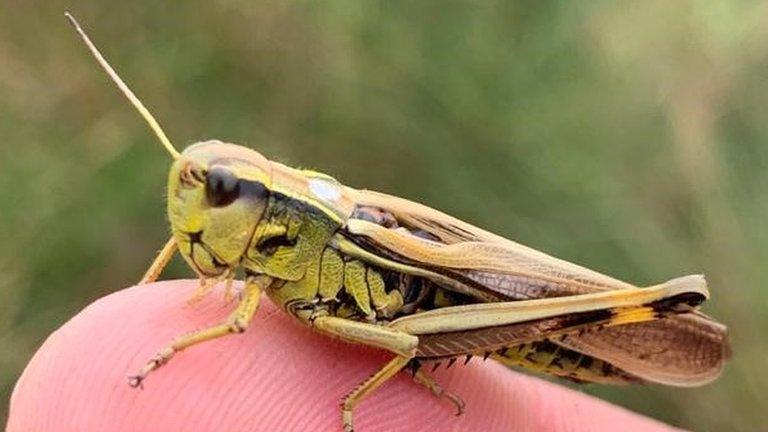Wild Ken Hill rewilding project boosts plant diversity - report
- Published
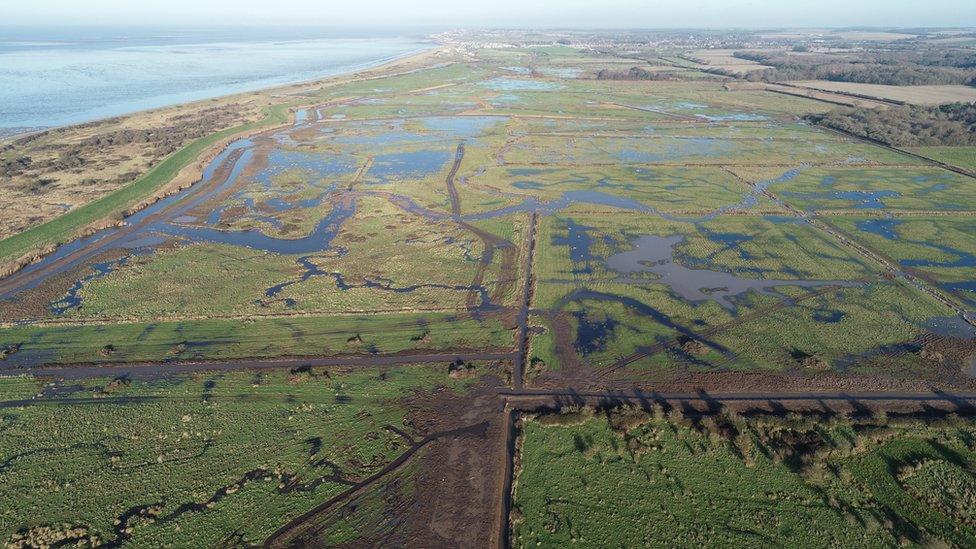
Wild Ken Hill is a conservation and sustainable farming project on the west coast of Norfolk
A conservation project that hosted the BBC's The Watches has boosted plant diversity, a report said.
According to the study, the average number of different plants in sampled areas roughly doubled at Wild Ken Hill in west Norfolk from 2019 to 2022.
About 1,000 acres of poor quality farmland and some woodland at the 4,000-acre nature site in Snettisham were "rewilded" in 2019.
Project leaders said the results from survey were "exciting" for wildlife.
The vegetation survey, external, which was carried out in 2019 and repeated in 2022 by ecologist Graeme Lyons, shows the average number of plants in sampled plots roughly doubled from 16.8 to 33.2.
Several rare plants with conservation status, including smooth cat's-ear, had spread and scrub and tree species were beginning to naturally regenerate, it said.
Wild Ken Hill said it credited the improvements to rewilding, particularly the introduction of free-roaming livestock, red poll cattle, Exmoor ponies and Tamworth pigs.
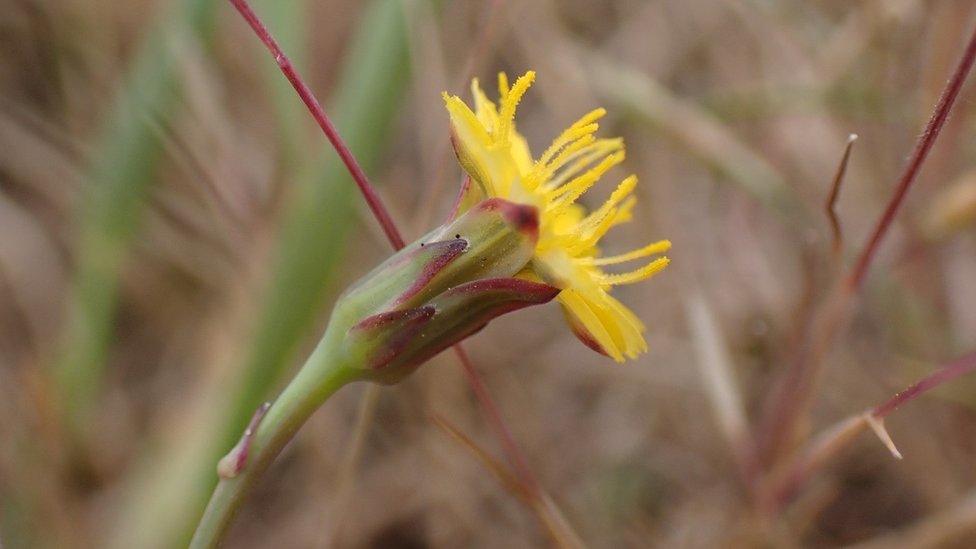
Several rare plants with conservation status, including smooth cat's-ear, have spread, says Graeme Lyons's study
Project manager Dominic Buscall said: "There is a popular misconception that rewilding is simply about species reintroductions, afforestation, or bringing back specific species like beavers.
"But the truth couldn't be more different at Wild Ken Hill.
"The very fabric of the ecosystem is being restored from the ground up in a science-based, nature-led, and low-cost manner, benefiting the full suite of species, from plants and invertebrates to birds and mammals."
Conservation manager Hetty Grant added: "The results from the survey are very exciting for wildlife. For example, take Graeme's work showing the increase in the variety and abundance of nectar sources.
"We know that increasing food resource for invertebrates like this will have positive knock-on effects right up the food chain, benefiting all manner of birds, bats, and more."
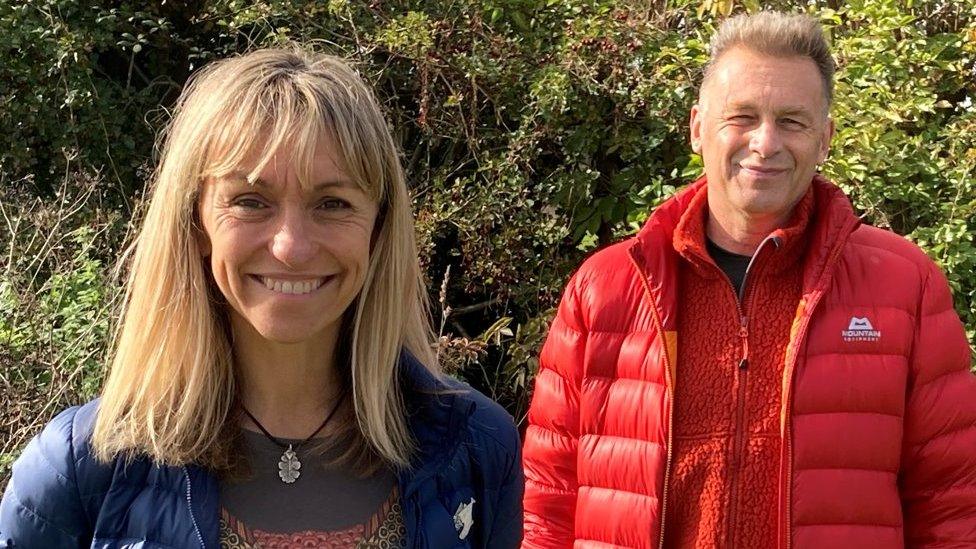
The Watches, hosted by Michaela Strachan and Chris Packham, were filmed at Wild Ken Hill from May 2021 to January 2023
Mr Lyons said the "standardised and repeatable survey" was not only important for "generating meaningful data" to inform Wild Ken Hill but also the rewilding movement as a whole.
Wild Ken Hill was home to the BBC's The Watches (Springwatch, Autumnwatch etc.) from May 2021 to January 2023.
It was also hit by fires during the summer heatwave last year.
It was the first site in Norfolk to reintroduce beavers in March 2020.
Winterwatch returns to Wild Ken Hill in Norfolk after summer heatwave fire

Find BBC News: East of England on Facebook, external, Instagram, external and Twitter, external. If you have a story suggestion email eastofenglandnews@bbc.co.uk, external
- Published17 January 2023
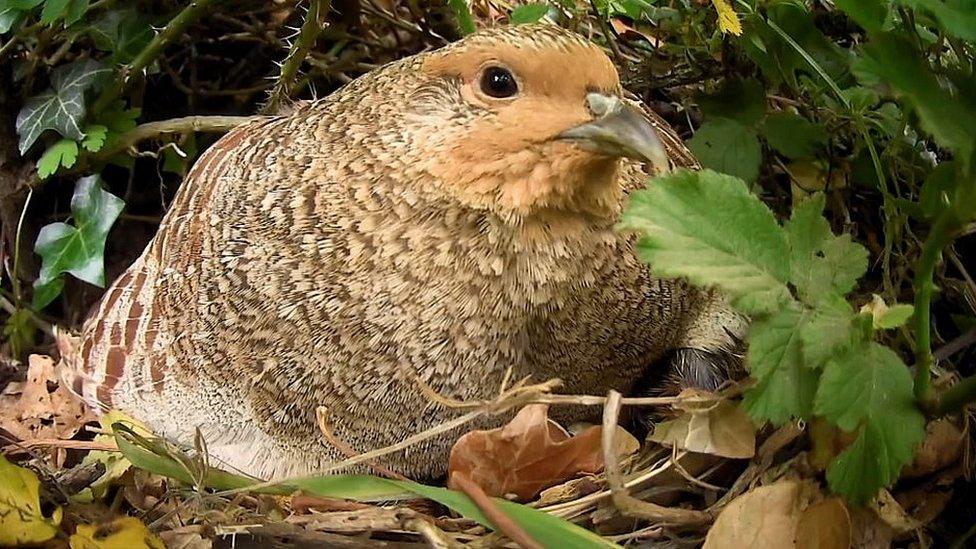
- Published26 October 2022
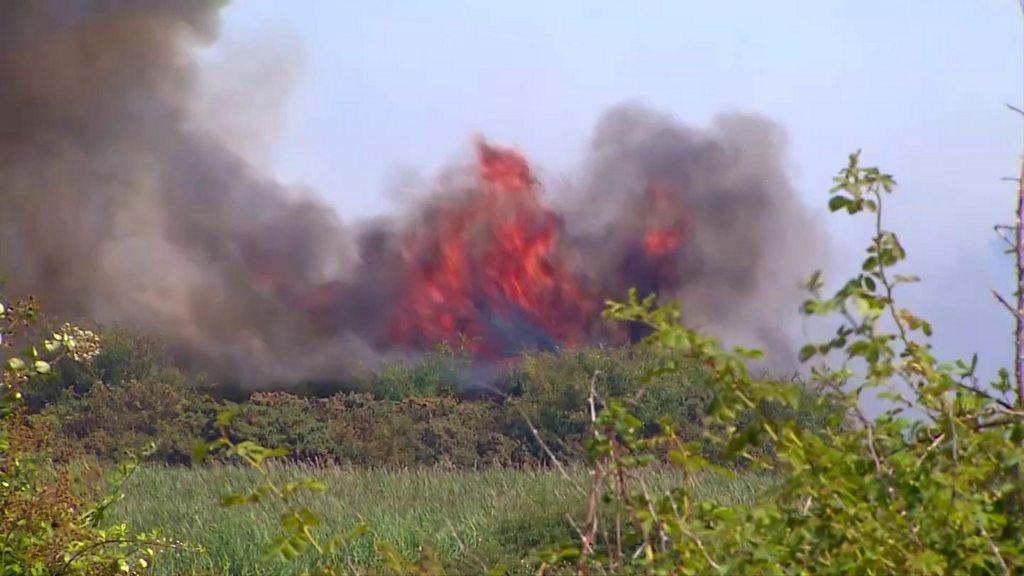
- Published10 August 2022

- Published24 July 2022

- Published23 September 2021
